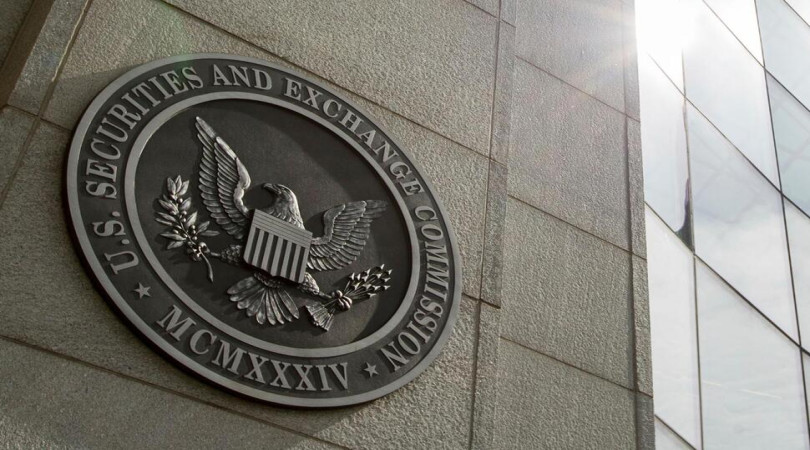You've got to give Bitcoin advocates credit where it's due – the cornerstone cryptocurrency asset is resilient.
Case in point: With U.S. securities regulators bearing down on the cryptocurrency sector after a scandal-ridden 2022, especially with the spectacular collapse of Sam Bankman-Fried's FTX exchange, Bitcoin (BTC) was on the ropes. By Nov. 22, 2022, Bitcoin's price had hit a two-year low, falling to $15,480 during the trading day.
But that was then and this is now, as Bitcoin backers are buoyant once again.
Through the end of February, Bitcoin was up more than 40% on a year-to-date basis. That was a solid rebound from a downbeat 2022, when Bitcoin plummeted about 64% in the midst of the much-maligned "crypto winter."
As usual, with a closer look at any period of market asset volatility, some context is required.
"Yes, Bitcoin is up 41% between Jan. 1, 2023, and Feb. 28, 2023," says Jordan Taylor, an independent financial advisor with Core Planning. "Bitcoin is also down 46% between Feb. 28, 2022, and Feb. 28, 2023."
Bitcoin's gains accelerated in March after the federal government's assurance that depositors to Silicon Valley Bank – a division of SVB Financial Group (SIVB) – would have access to all their funds at the failed bank, boosting investor confidence. On top of that, inflation numbers for February came in right around expectations, with the core consumer price index rising 5.5% year over year last month, the slowest increase since December 2021.
Bitcoin surged from a low of $19,628 on March 10 to highs above $26,500 on March 14, and BTC hit a new nine-month high as well.
Here are some factors to examine when deciding whether Bitcoin will rise even more in 2023, making it a potentially worthwhile addition to your investment portfolio:
- What's fueling Bitcoin's rise in 2023?
- Prospects for Bitcoin price appreciation in 2023.
- For BTC traders, due diligence is key.
What's Fueling Bitcoin's Rise in 2023?
Bitcoin could and should be doing even better, crypto mavens say.
"In actuality, there are some key issues that may have been thwarting Bitcoin's market cap growth in 2023," Taylor says.
Taylor points to the prolonged legal battles that have overwhelmed major crypto exchanges, especially the collapse of a major institution like FTX.
"That's a major setback," he says. "Imagine if the New York Stock Exchange collapsed tomorrow with similar issues? The stock market would be paralyzed."
Despite the recent meltdown in regional banks, the broader financial markets have held stable so far this year, with the S&P 500 up about 0.4% as of March 13. Traditional financial assets overall have begun recovering and showing signs of future recoveries. "Historically, this drives money away from alternative assets," Taylor says.
But negative pressures are not the only ones in play. There are other critical factors that are pushing Bitcoin prices forward in 2023, as follows:
Cryptocurrency's institutional legitimacy. There's a growing acceptance of cryptocurrencies by institutional investors and corporations. For example, in 2021 major companies such as Tesla Inc. (TSLA) invested billions of dollars in Bitcoin, signaling increasing mainstream acceptance of digital assets. Though Tesla unloaded 75% of its investment a year later during the crypto crash, the trend of global mass adoption continues.
Investors playing defense. The COVID-19 pandemic, geopolitical conflict, inflation and other factors have led to economic uncertainty, causing some investors to view Bitcoin as a potential safe-haven asset.
Crypto's growth as a payment option. The increasing mainstream acceptance of cryptocurrencies as a form of payment is also driving demand for Bitcoin. Major companies such as PayPal Holdings Inc. (PYPL) have begun to offer cryptocurrency payment options, and the market is growing, experts say.
Public policy turning crypto's way. Global regulatory changes are also impacting the price of Bitcoin. Though it's been a rocky road, El Salvador recently became the first country to adopt Bitcoin as legal tender, and other countries may follow suit. Other governments have also announced plans to regulate cryptocurrencies more closely, which could impact their value.
Avenue to bypass the banking system. The potential for cryptocurrencies to provide a hedge against economic uncertainty is no secret, as evidenced by Bitcoin's price gains during the pandemic. But now, Bitcoin buyers are moving on to new hedge-fueling strategies, as the shift toward digital identification by governments is also driving demand for crypto.
For example, China's digital yuan project has led some to view cryptocurrencies as a potential alternative means of storing and transferring wealth outside of the traditional banking system.
In addition, cryptocurrency has been an instrumental part of Ukraine's defense strategy after the Russian invasion on Feb. 24, 2022. Following the Ukrainian government's pleas on social media for crypto donations, it reported it was able to raise $60 million worth of Bitcoin and Ether (ETH) in less than a month.





